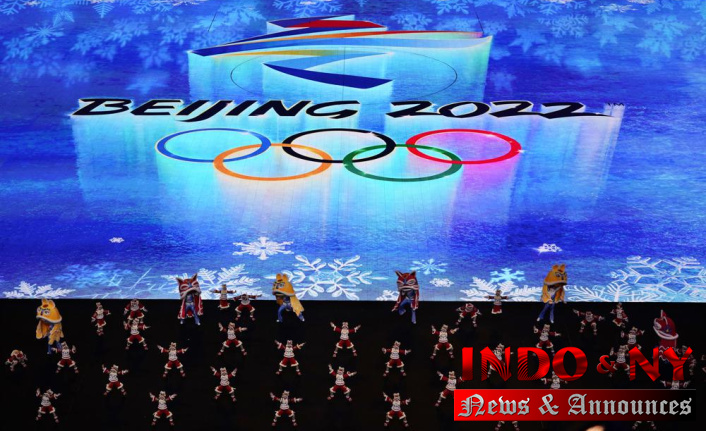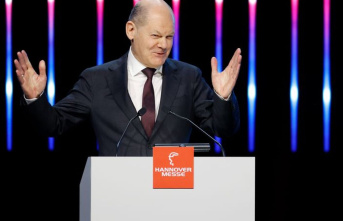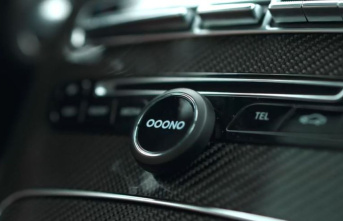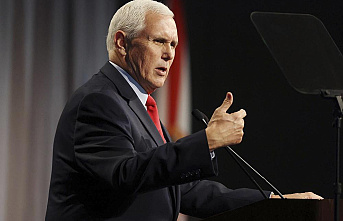China used its first Olympics to increase its international ambitions. It invited the world back Friday for the pandemic-era's second Games. This time, as an empowered and more powerful nation, whose authoritarian government caused some leaders of other countries to stay home.
During a ceremony heavy in ice-blue colors and winter imagery, the Games were officially opened by President Xi Jinping of China. It was held in the same Bird's Nest stadium with lattice that hosted the 2008 Summer Olympics' inaugural event.
The Olympic flame was presented by Dinigeer Yilamujiang and Zhao Jiawen, both athletes from the Uyghur Muslim minority of China. Yilamujiang's selection was symbolic: Many critics claim that the Beijing government has oppressed and abused Uyghurs in a large scale.
Beijing was the first city to host both the winter and the summer Games after the flame was lit. While some people are avoiding the second pandemic Olympics within six months, many world leaders attended this opening ceremony. The most notable is Russian President Vladimir Putin who met with Xiearlier on the day that a dangerous standoff erupted at Russia's border to Ukraine.
Thomas Bach, President of the International Olympic Committee addressed assembled athletes.
This year's Games will also be impacted by the pandemic, as it did last Summer in Tokyo. Nearly 6 million people have died in the past two years since the first COVID-19 case was identified in China's Hubei Province, 700 miles (1,100km) south of Beijing. Hundreds of millions more have been affected around the globe.
Because of tight government lockdowns, the host country has one of the lowest rates for illness and death from the virus. This is partly due to the fact that the lockdowns were imposed in order to quickly eradicate outbreaks. Anyone who arrived to participate in the Winter Games was immediately greeted by such measures.
An Olympic opening ceremony is a great opportunity for a host country to show off its culture, identify its place in the world and showcase its best sides. This is something China has been consuming for many decades. The gulf between reality and performance is particularly apparent at the Beijing Games this year.
A Beijing opening ceremony in 2004 that featured thousands of card-flipping artists and massive pyrotechnics set a new standard for the Olympics. It was the perfect start to what is often called China's "coming out."
China is here, regardless of how you look at it. However, the hopes for a more open country which accompanied those first Games have faded.
Beijing sees these Olympics as a confirmation of Beijing's status as a world power and player. However, for many people outside China, especially in the West, these Olympics have become a confirmation that the country is embracing more oppressive policies.
Chinese authorities are stifling pro-democracy activism, tightening their control on Hong Kong, becoming more confrontational towards Taiwan, and interning Uyghurs at the far west -- a crackdown that the U.S. government has called genocide.
Leaders of Australia, Canada, Britain and Australia, among others, protested these actions by imposing a diplomatic boycott of these Games. They refused to appear alongside Chinese leaders while still allowing athletes to compete. China returned Friday with its symbolic finger in the eye, placing Yilamujiang into the most anticipated role of the opening night.
The controversy surrounding Peng Shuai , a Chinese tennis player, was another example of China's suppression dissent in the lead up to the Olympics. After accusing a former Communist Party official with sexual assault, she disappeared from the public eye last year. The internet quickly removed her accusation, but discussion about it is still heavily restricted.
China performed its show in the shadow of these political issues. As Xi sat down, the performers turned towards him and repeatedly bowed. As they raised their pom-poms towards their president, China's most powerful leader since Mao Zedong who founded the People's Republic of 1949, a simultaneous cheer was heard. The celebrations were announced by a barrage of fireworks that included some that spell out "Spring".
The national flag was carried by a line of people wearing costumes that represented China's diverse ethnicities. They then passed it to the pole, where it was raised. This is a sign of unity China uses as part of its narrative of how its many ethnic groups live in peace and prosperity.
Politics still dominated the proceedings. The crowd cheered the arrival of the athletes from Taiwan, an island democracy China claims it owns but which competes as "Chinese Taipei". Putin, a man in excess, stood and waved to the delegation while they marched.
After authorities allowed a small group of people to attend events, the stadium was fairly full.
As with all Olympics, Saturday's focus will shift from geopolitical issues to the athletes.
All eyes now turn to Mikaela Shifrin , Alpine skiing's king, to see if she can surpass her already impressive Olympic medal haul. Shaun White will be the Olympic snowboarding sensation. We'll also see if Chloe Kim who is currently the standard bearer of the sport, will amaze us once again. It will be interesting to see if Russia's women win the figure skating medals.
China has its eyes on Eileen Gu the American-born, freestyle skier, who is 18 years old and was born in America. She could win three gold medals.
The conditions that Chinese authorities impose on their competitors are a stark contrast to 2008 Games' party atmosphere. Some hotel staff, as well as immigration officers, have been fully covered in goggles, masks, and hazmat gear. All attendees are subject to a daily test, with lengthy quarantines for those who test positive. There is no way to get from the Olympic venues into the city without passing through the chain-link fence. It is covered with cheery messages about a "shared tomorrow together".
China has seen its own transformations in the years that have passed since its first Games. It was an emerging global economic power, making its greatest leap onto the international stage. It is now a growing superpower. Xi, the former head of the 2008 Olympics has now taken control of the whole country and encouraged a personality-driven campaign for adulation.
Three decades after the troops destroyed massive demonstrations of democracy in Tiananmen Square and killed hundreds, if not thousands of Chinese, an estimated 1,000,000 members of minorities were held in mass internment camps by the government. These have been called the "Genocide Games" by human rights groups.
China claims the camps are vocational training and education centers that were part of an antiterror campaign. They have since been closed. It denies any violations of human rights.
Many people gathered outside the Olympic "bubble", which separates regular Beijingers and Olympians and their entourages. They were dressed in winter jackets and hoped to catch a glimpse of the fireworks but they were stopped by police.
Others expressed excitement and pride about the world's visit to the city. Zhang Wenquan is a collector Olympic memorabilia. He said that he was excited but was also tempered by the virus that has made life so much easier for so many.
Zhang stated that the fireworks will be more spectacular than in 2008. "I wanted to see it. ... However, the epidemic may mean that there is no way to prevent it."












